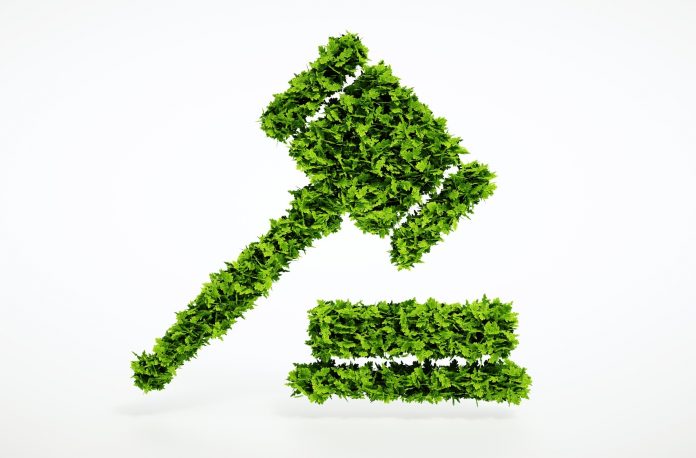This article is written by Sagarnil Ghosh and Pubali Chatterjee, students of Amity University, Kolkata.
Table of Contents
Abstract
This article deals with the ideal of Indian judiciary on environmental justice and the progression that is taken up for the changes instituted in such laws.
The principles and the doctrines that govern the Indian judiciary are mixed and matched through the principles instituted and that is the doctrine of absolute liability, polluter pays principle, precautionary principle, public trust doctrine, doctrine of sustainable development that govern the institution of environmental jurisprudence.
Some provisions of the Indian Constitution that must be kept in mind while emitting justice to the people as far as environment comes into context:
Article 21, Article 48-A, Article 51-A (g) of the Indian Constitution.
Introduction
Environment is the wellspring of living and nonliving life on earth like water, air, soil, and so on, and decides the nearness, advancement and improvement of humankind and every one of its exercises. The idea of environmental assurance and safeguarding isn’t new. It has been characteristic for some antiquated human advancements. Antiquated India messages feature that it is the dharma of every person in the general public to ensure nature and the term ‘nature’ incorporates land, water, trees and creatures which are vital to us.
As indicated by the Webster Dictionary, it is characterized as the “Total of all the outside conditions and impacts influencing the life and advancement of an organism.”
The Environment (Protection) Act, 1986, Area 2(a) condition “incorporates water, air and land and the relationship which exists among and between water, air and land, and individuals, other living animals, plants, smaller scale creature and property.”
Along these lines, in the wake of breaking down all the above definitions, the fundamental thought that can be finished up is that condition implies the environmental factors where we live and is basic for our life.
Simultaneously, new advancements like, thermal power generation, nuclear plant, etc with no adequate normal affirmation represent another risk to the circumstances, the eventual outcome of which brings about issues like a dangerous atmospheric devastation, environmental change, corrosive downpour, and so forth. In addition, as indicated by example of Indian council to cause various enactments rather than to tending to the explanation behind disappointment and disillusionment, and passing new bills reliably is much the same as ‘old wine in new jug’. Subsequently, there emerges a prerequisite for a complete investigation of the security of the earth. As of late, there has been a supported spotlight on the pretended by the higher legal executive in conceiving and observing the usage of measures for contamination control, preservation of woodlands and untamed life insurance. A large number of these legal intercessions have been activated by the persevering incongruity in strategy making just as the absence of limit working among the official organizations. Legal instruments, for example, Public Interest Litigation (PIL) have been noticeably depended upon to handle ecological issues, and this methodology has its supporters just as pundits.
Today we are living in the atomic field. nobody can disregard the harms caused to the earth by the atomic bombs, dropped via planes having a place with the United States on the Japanese urban networks of Hiroshima and Nagasaki in the midst of the last periods of World War II in 1945. Everyday development and headway of innovation, aside from advancement also extends the hazard to human life. Likewise, there emerges a serious and an intense need for the law to stay up with the need of the general public alongside people. So now the subject of ecological security involves overall concern, it isn’t limited to any nation or domain.
This article talks about the aspects of judiciary to support environmental jurisprudence till date.
Sketch of the present progression status quo of Environmental Jurisprudence
Under the lights of the Rio-de Janeiro (late 1970s) earth’s highest point and the thoughts of International bodies, for example, the UN, the World Commission on Environment and development India is touching off its potential best. The Ministry of Environment and Forests set out its targets and has been putting sincere endeavours to dispose of all the ordeals. Following are the primary goals set down by the service of condition:
- Conservation and review of verdure, fauna, forests and natural life
- Prevention and control of contamination
- Afforestation and recovery of corrupted zones
- Protection of condition, all inside the edge work of enactments
The Indian Government has played its move, Regular studies all through the nation are done in a brief timeframe, this not just encourages the legislature to keep a check of what is happening in the nation however the crude information accessible likewise helps in innovative work programs. Further, Indian Government is likewise trying its best to curtail pollution issues inside the topographical limits. Recovery programs and undeviated support from NGO’s has prompted extra assistance in controlling such issues. Respectable advance, without a doubt however would that be able to be named as satisfactory is the issue. As the years progressed, the service has endorsed unending laws to help them in their task of natural assurance. Tragically, all the guidelines and acts have not done what’s needed to shield the environment against all experiences. The ravenousness of numerous in the overseeing bodies has prompted abuse of the laws and heartless misuse of the land, prompting natural annihilation furthermore, social shameful acts.
Initiative by the Judiciary
The most trademark highlight of the Indian environmental law is the significant pretended by the open intrigue litigation. There have been innovativeness from the governing body and the official however it is the Indian legal executive which has taken a lead as far as the real quick impacts in the issues of nature. Dissatisfaction from the legislative organizations to execute the laws made, incited the NGO and Public to move toward the Courts if all else fails.
Ganges Pollution Case: The Supreme Court of India responding to the open intrigue litigations has passed a few decisions and various Orders against dirtying enterprises numbering in excess of fifty thousand in the Ganga bowl. Because of these headings a great many individuals have been spared from the impacts of air and water contamination in Ganga bowl covering 8 states in India.
The Sustainable Development Theory
The all-around perceived principle of sustainable development for the security and improvement of condition has been consistently acknowledged by the world nations as a procedure that obliges the requirements of the present without denying the people in the future of their entitlement to accessible normal assets. It has been properly said that the principle of sustainable development is intended to make sure about a harmony between formative exercises for the advantages of the individuals and natural assurance and in this way, “it is an assurance to the present and pass on to the people in the future.”
The standard of practical improvement looks to blend the contention between advancement which might be modern, financial or social, and right to sound condition. At the end of the day, the harmony between ecological assurance and formative exercises must be kept up by carefully clinging to the principle of sustainable development.
Right to live a pollution free environment
M C Mehta v. Union of India the Supreme Court offered the privilege to live in contamination free condition as a piece of essential right to life Under Article 21 of the Indian Constitution. Likewise, A. P. High Court in T. Damodar Rao v. S. O. City Corporation, Hyderabad set out that option to live in solid condition was explicitly proclaimed to be part of Article 21 of the Constitution.
Precautionary Principle
The precautionary principle requires that, if there is a solid doubt that a specific movement may have naturally destructive results, it is smarter to control that action now instead of to sit tight for undeniable logical proof. This standard is communicated in the Rio Declaration, which specifies that, where there are “dangers of genuine or irreversible harm, absence of full logical conviction will not be utilized as an explanation behind delaying savvy measures to forestall natural corruption.
The Polluters Pay Principal
The ‘polluter pays’ standard is the generally acknowledged practice that the individuals who produce contamination should bear the expenses of overseeing it to forestall harm to human wellbeing or the earth. For example, a plant that creates a possibly toxic substance as a side-effect of its exercises is typically considered answerable for its protected removal. The polluter pays standard is a piece of a lot of more extensive standards to control feasible improvement around the world.
Relief of Injunction by the Judiciary
Injustice comfort is primarily based totally at the precept of implied powers and stable execution of public welfare legal guidelines the Madras High Court in Pondicherry Papers Ltd. v. Central Board for Preservation and Control of Water Pollution, has held that: “The courts have huge powers to provide injunctive reliefs beneath Section 33 of the Water Act and to put off the pollutants or save you it. The Court at the receipt of a utility is permitted to provide any route or order which it deems fit. If the judiciary offers any route or order to restrain any man or woman from polluting water in any circulate or properly, it may: a) Direct the man or woman to forestall from inflicting pollutants and to remove from such circulate or properly such substance; and) If the individual does now no longer eliminate such substance, permit the Board to remove and discharge of the substance. If the board gets rid of the substance, the value so incurred may be recovered from the individual worries as arrears of land sales or of public demands.
Conclusion
Since crude society cherishes condition and condition in turns feeds them. Condition and society are along these lines associated and it is the obligation of society to secure conditions. Along these lines, In India a number of Acts instituted by Parliament for the assurance of condition, and adequately deciphers by the official courtroom. Indian legal executives have been exceptionally delicate and alive to security of condition. The Supreme Court has refashioned its institutional job to promptly authorize privileges of the individuals to spotless and sound conditions and even force positive commitments on the state. It isn’t just an obligation of the legal executive to secure the earth, however it is the obligation of each nation and their resident to ensure the earth.
However, regardless of the order of the Supreme Court the usage of firecrackers withinside the region in the course of Diwali becomes substantial. Air first-rate deteriorated subsequent morning exponentially, it appears humans make mockery of the order. It is to be mentioned that regardless of the proactive position of the Supreme Court subculture of environmental safety has now no longer been developed by some of the masses. It is past the light of doubt that with a purpose to shield surrounding the remote orders of the Supreme Court could now no longer have preferred effect. Environmental awareness should be inculcated within the not unusual place of the human psyche. Alsogovt has to play an optimistic position in protective surroundings to which they miserably failed so far. It is excessive time that govt should co-perform and complimenton this cause.
LawSikho has created a telegram group for exchanging legal knowledge, referrals and various opportunities. You can click on this link and join:
 Serato DJ Crack 2025Serato DJ PRO Crack
Serato DJ Crack 2025Serato DJ PRO Crack











 Allow notifications
Allow notifications


